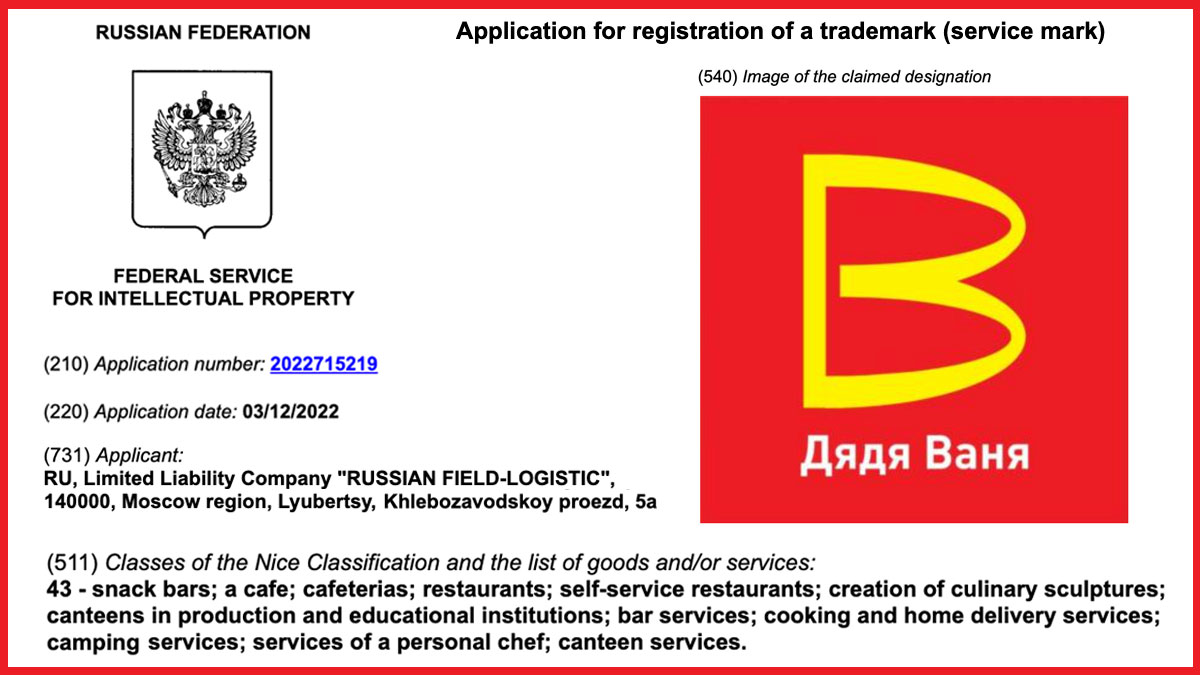Many major US and international companies have disengaged in various ways with their businesses in Russia. Some (like McDonald's) are still paying their Russian employees, but not operating stores. Which must be painful for the shareholders. I can't see that going on indefinitely.
Others are (at least for the moment) content to continue in Russia. Koch Industries, Halliburton, Cinnabon, Subway.
And some are in very difficult situations. Their Russian operations may be jointly or mostly owned by franchisees or Russian partners. Companies like Burger King and Papa John's don't have full control. Papa John's International has ceased operations in Russia, but a Russian franchisee is running 190 stores.
There is also the very real threat that Russia could nationalize closed stores. Indeed, it looks like there may be some plans afoot for Uncle Vanya's burgers, with a snappy logo:

https://www.washingtonpost.com/world/2022/03/18/uncle-vanya-russian-mcdonalds-replacement-logo/
In a March 12 trademark filing, Uncle Vanya’s yellow and red logo looks almost identical to the iconic Golden Arches of McDonald’s, but tilted 90 degrees to the right. They form part of the letter “B” in the Cyrillic alphabet, which corresponds to the “V” in “Vanya.”
Though none of these new restaurants have opened yet, the plan is apparently to take over existing shuttered McDonald’s restaurants. The new eatery takes its name from the 19th-century play “Uncle Vanya” by Russia’s Anton Chekhov.
--
Now Russia represents only 3% of global GDP, and for most of these international companies, it's probably even a smaller share of their global business. So the amount of pain is not enormous.
Certainly I'm not the first to draw parallels between Russia/Ukraine and China/Taiwan, but imagine how the parallel situation would evolve in China, which is 18% of global GDP. Obviously it's a huge manufacturing hub for many international companies. I believe the rules in China require that for many important industries, all 'foreign' businesses must be joint ventures with local Chinese entities. So the stakes would be much higher, the legal situation would be more like the Burger King's and Papa John's. If it came to it, I doubt China would hesitate to nationalize anything within its borders.
It's an ugly scenario. The only silver lining I see is that China has seen how the international community (both governments and private industry) have responded to Russia. But the story isn't over yet. We don't know how it will end and what the lessons learned will be. And we don't know whether private businesses would be as willing to cease operations in China.
Others are (at least for the moment) content to continue in Russia. Koch Industries, Halliburton, Cinnabon, Subway.
And some are in very difficult situations. Their Russian operations may be jointly or mostly owned by franchisees or Russian partners. Companies like Burger King and Papa John's don't have full control. Papa John's International has ceased operations in Russia, but a Russian franchisee is running 190 stores.
There is also the very real threat that Russia could nationalize closed stores. Indeed, it looks like there may be some plans afoot for Uncle Vanya's burgers, with a snappy logo:

https://www.washingtonpost.com/world/2022/03/18/uncle-vanya-russian-mcdonalds-replacement-logo/
In a March 12 trademark filing, Uncle Vanya’s yellow and red logo looks almost identical to the iconic Golden Arches of McDonald’s, but tilted 90 degrees to the right. They form part of the letter “B” in the Cyrillic alphabet, which corresponds to the “V” in “Vanya.”
Though none of these new restaurants have opened yet, the plan is apparently to take over existing shuttered McDonald’s restaurants. The new eatery takes its name from the 19th-century play “Uncle Vanya” by Russia’s Anton Chekhov.
--
Now Russia represents only 3% of global GDP, and for most of these international companies, it's probably even a smaller share of their global business. So the amount of pain is not enormous.
Certainly I'm not the first to draw parallels between Russia/Ukraine and China/Taiwan, but imagine how the parallel situation would evolve in China, which is 18% of global GDP. Obviously it's a huge manufacturing hub for many international companies. I believe the rules in China require that for many important industries, all 'foreign' businesses must be joint ventures with local Chinese entities. So the stakes would be much higher, the legal situation would be more like the Burger King's and Papa John's. If it came to it, I doubt China would hesitate to nationalize anything within its borders.
It's an ugly scenario. The only silver lining I see is that China has seen how the international community (both governments and private industry) have responded to Russia. But the story isn't over yet. We don't know how it will end and what the lessons learned will be. And we don't know whether private businesses would be as willing to cease operations in China.